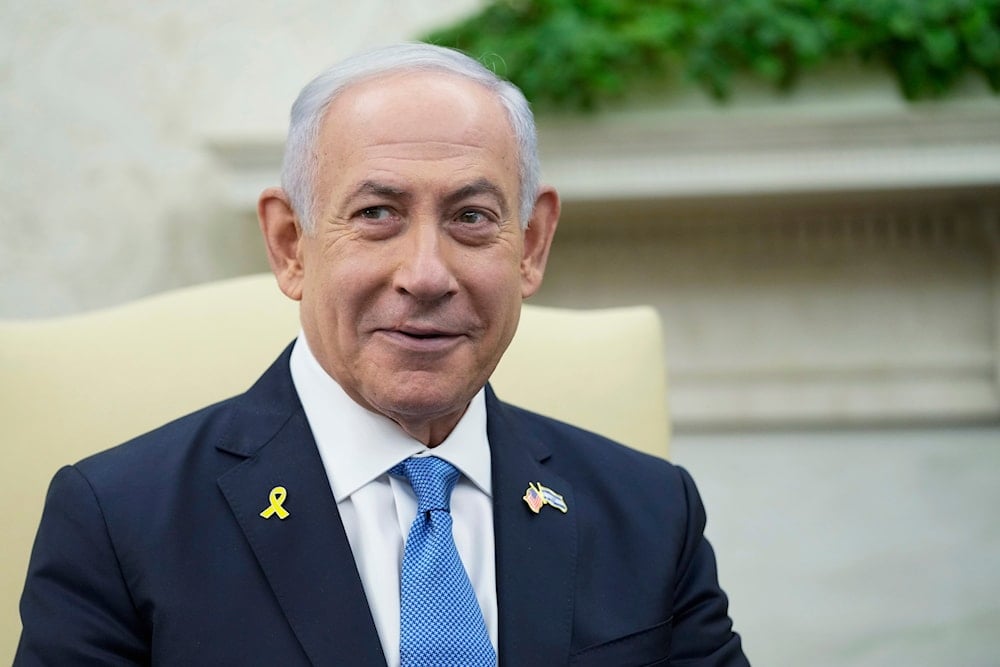We are not prepared for a regional war: Israeli media
Israeli media highlights that "Israel" urgently needs a ceasefire as it cannot bear a full-fledged regional war.
-

Israeli Prime Minister Benjamin Netanyahu speaks during his meeting with President Joe Biden in the Oval Office of the White House in Washington, on July 25, 2024. (AP)
Israeli media has highlighted increasing discord between the occupation's military and political leaders over negotiating a ceasefire and prisoner exchange in the Gaza Strip. According to the Makor Rishon newspaper, the situation is critical, with the outcome of the entire war hanging in the balance, not just the fate of the captives.
The security and military officials are advocating for a temporary ceasefire, while those opposing any deal have fortified their stance with new arguments, believing that halting the war at this point would be catastrophic. As a result, the rift between them is widening.
The newspaper highlighted that Israeli Prime Minister Benjamin Netanyahu has determined that "Israel's strategic interests necessitate the Israeli army's continued presence in the Philadelphi and Netzarim Corridors." In contrast, the security and military establishment contends that such a presence is unnecessary.
According to Makor Rishon, another key objective for the General Staff in the proposed deal is to secure the ceasefire itself. The General Staff believes that "Israel" urgently needs this ceasefire to regroup and strategize for the northern front. Meanwhile, the political leadership would have the opportunity to deliberate and determine the next steps.
The Israeli newspaper highlighted, "What does 'absolute victory' actually entail? What kind of lasting settlement in the Gaza Strip does Netanyahu envision? Does he genuinely have a plan to restore peace and security to the al-Jalil?"
Disintegration threatens the existence of 'Israel'
In the same context, Makor Rishon journalist Ari Shavit discussed the collapse of internal unity in "Israel" at the onset of the war. He observed that the situation has become risky with the resurgence of intense internal rifts, as rising animosity "exacerbates the existential threat" of the occupation.
Shavit said, "The essence of the past 15 years in which Netanyahu has led Israel is not strength, but weakness."
"We are standing on the edge of the abyss, and at any moment a low-intensity regional war could turn into a high-intensity regional war for which we are not prepared," he added, noting that "the culture of mutual accusations, at this fateful hour, become destructive and deadly."
'Deep divide'
Yesterday, CNN reported divisions and deep disagreements between Israeli security officials and Prime Minister Benjamin Netanyahu's government, whose far-right members have rejected any potential ceasefire deal.
According to the network, Israeli reports cite security officials accusing Netanyahu of sabotaging negotiations.
CNN noted that even if an agreement is reached—which remains uncertain—it may only last for weeks before collapsing and the resumption of the war in Gaza, citing Netanyahu's statement in late June to the Israeli Channel 14.
"I am ready to do a partial deal, it is no secret, that will bring back some of the people," Netanyahu said at the time, "But we are committed to continue the war after the pause in order to achieve the goal of destroying Hamas. I will not give up on this."
A senior American official told the network that the Israeli military "would like a ceasefire now," which would retrieve the captives held in the Gaza Strip.

 3 Min Read
3 Min Read








